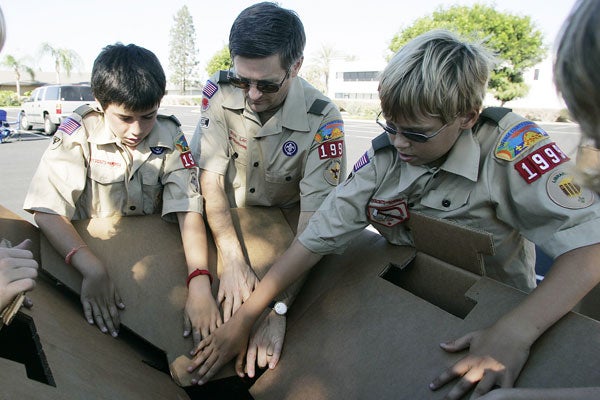The Government-as-Caretaker State got a regrettable boost this week. But that hasn’t put a stop to the demonstrations of why civil society is so important to this country’s past and future.
This weekend, with Thanksgiving approaching, Boy Scouts will visit neighborhoods throughout the nation. They will collect a bounty of canned and dried foods in bags that their younger counterparts, the Cub Scouts, distributed to homes earlier in the week for the decades-long tradition of “Scouting for Food.”
These troops will be delivering more than sustenance to the patrons of local food banks and shelters—it’s something that is spiritually sustaining and revitalizing as well. These troops are a tangible reminder that the resource that has enabled this nation to survive and thrive since its inception—the “little platoons” that comprise the lifeblood of our civil society—is still in force.
And as they give of their time and effort, these youths will receive something as well. In serving, they are developing qualities of conscientiousness and compassion that will stay with them throughout their lives. In the words of one Cub Scout, 10-year-old John from Northern Virginia, “I liked the experience of doing this. People benefit, and I learned that I can help people in need.”
These young people are part of an expansive network of civic volunteers who are working effectively to address even the most entrenched societal problems ranging from youth violence to drug and alcohol addiction. Their efforts are powerful and their impact is sustainable because they address the root causes of the issues they deal with and work to strengthen the relationships that are the foundation of healthy individuals, families, and communities.
These efforts go beyond the reach of the government safety net for those who fall into hard times. Policy can make sure that the safety net is reformed to promote work and the kinds of choices that will lead to upward mobility, providing opportunities for men and women to engage their capacities and fulfill their potential.
Above all, we should recognize and promote the neighborhood-based service that has been the hallmark of our nation, a source of societal cohesion, and a catalyst for the development of the character and heart of American citizens.





























